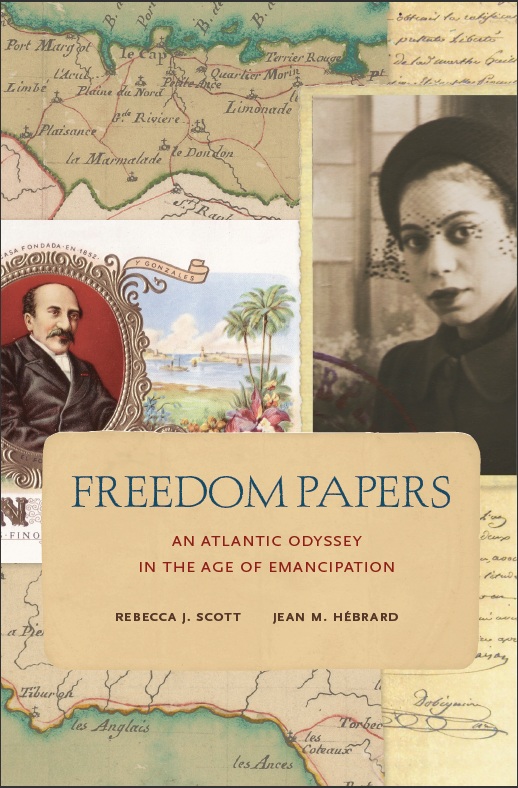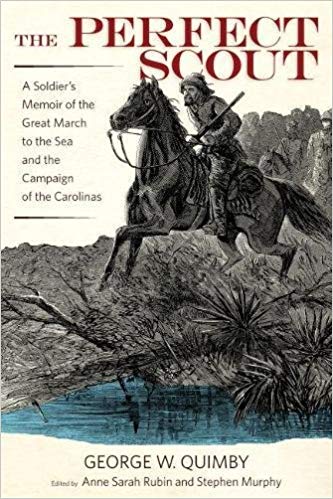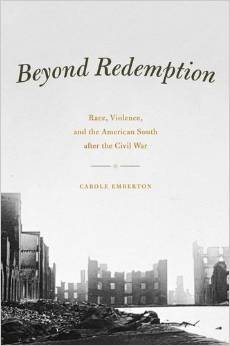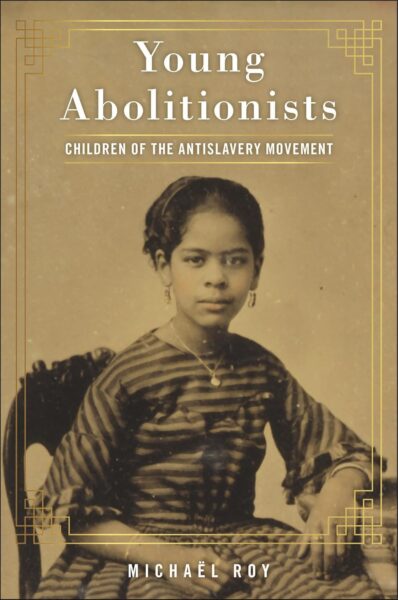In September 1899, Edouard Tinchant (1841-1915), a man of Haitian descent with an unusual background, including service in Company C 6th Louisiana Volunteers, during the Civil War, wrote to Maximo Gomez, the revered leader in the Cuban Independence struggle. Tinchant, a tobacco manufacturer in Antwerp, requested permission to use the general’s name and portrait on his finest cigars tentatively named “Maximo Gomez.” As an admirer of the “Great Man,” Tinchant anticipated that his own military service, financial contributions for Cuban independence, and participation in the Louisiana Constitutional Convention (1867-1868) would ingratiate himself to Gomez, an advocate of “antiracism . . . with particular emphasis on dignified adulthood and masculinity” (2). Nevertheless, Gomez followed established protocol and ordered refusal “with courteous phrases” (169).
Ordinarily, a single letter in the Cuban National Archives may not serve as catalyst for a book-length study, but it was not an ordinary letter. Following its chance discovery by Rebecca J. Scott, she and Jean M. Hebrard embarked on a seven-year research odyssey culminating in the publication of Freedom Papers, which is not an ordinary book. It is a biography of the Senegambia-born Rosalie (1767-?) and several generations of her descendants with linkages to freedom struggles in the Haitian Revolution, American Civil War, and Cuban War for Independence. Freedom Papers reveals “the heart of the problem of freedom, and of the phenomena of race, racism, and antiracism” as experienced by the Tinchant family in the age of emancipation (5).
Within the larger historical context, readers follow the enslavement of Rosalie in Saint Domingue through her emancipation as Marie Francoise, conjugal partnership with the Frenchman Michal Vincent (1730-1804), and mother of Elizabeth (1799-1883). During the Haitian Revolution, they fled to Cuba but were separated when Spanish officials refused to grant them sanction, and Vincent died unexpectedly. Rather than returning to Haiti, Elizabeth migrated to New Orleans where she married Jacques Tinchant (1798-1871), an artisan and businessman. Between 1825 and 1836, they became parents to five sons, whom Marie Francoise never met. Although comfortable in Louisiana, Jacques and Elizabeth migrated to France in 1840. According to Edouard, his father’s sole objective was to rear his sons “in a country where no infamous laws or stupid prejudices could prevent them from becoming MEN” (2).
As “MEN,” with their parents’ emotional and financial support, the Tinchant men distinguished themselves as exporters of miscellaneous goods and fine cigars from their continental base Belgium, a country without a “history of formalized color discrimination” (106). The Tinchant men gave true meaning to their international enterprises with two brothers living in New Orleans where they brokered business deals, maintained a tobacco warehouse, and manufactured cigars with free laborers and slaves of their own. Other brothers migrated to Mexico, a key location in their trade network, where they envisioned the cultivation of high-quality leaf tobacco for export from Antwerp, a vibrant port city with cheap labor.
Primary themes in the Tinchant history involve mobility and documentation. Book chapters begin with arrivals and end with departures. Family members crossed and re-crossed the Atlantic Ocean and Gulf of Mexico in pursuit of civil rights, racial equality, and business success. Simultaneously, they attempted to establish themselves as legitimate sojourners, worthy entrepreneurs, or respectable citizens of North America or Europe. Their actions generated an extensive and invaluable paper trail, which includes manumission documents, marriage certificates, baptismal records, sales receipts, passport applications, wills, petitions, law suits, and deeds, that meander through Senegal, Haiti, Cuba, United States, France, Mexico, Belgium, and Germany. “At each step of the way,” write Scott and Hebrard, “these travelers interpreted and conveyed to others the path the family had followed, and framed the journey in terms that could validate the choices they had made and the social standing they hoped to secure”(3).
When reconstructing the path, the authors located primary validations of the odyssey in archives stretching from Senegal, the foremother’s place of birth, into the Diaspora where her descendants scattered. Beyond the actual travel from one continent or island to another, legal records indicate that the family fled from racism and shed its slave lineage for images of prosperous cosmopolites without clearly defined racial markers. Other evidence shows that the family reworked its history and memory to the extent that the Louisiana-born Joseph Tinchant became Don Jose Tinchant, a Mexican citizen. Furthermore, by adding his American wife’s family name, Don Jose Tinchant y Gonzales replaced his Creole heritage with the illusion of biological connections in Latin American or Cuba. Such a name was good for business, particularly when imagining hand-rolled havanes.
Despite color and class obstacles, the Tinchants claimed success due, in part, to their tenacity, business skills, shifting world markets, and vested interests of family members spread along trade routes. In 1875, Tinchant Frères began its Antwerp operation with 10 workers and, by 1891, it employed approximately 2,000. Furthermore, by 1900, the company served clients and dealers in major cities, including Bucharest, Lisbon, London, and Algiers. By then, the brothers had sold over 50 million cigars.
Freedom Papers may have ended with the chapter “Citizens beyond Nation.” However, the authors learned of a 1937 story in the London Daily Mail and Pittsburgh Courier about Rosalie’s great-great-granddaughter, Marie-Jose, claiming her fiancé’s parents objected to their marriage because she was a woman of color. An investigation of this new paper trail prompted the authors to add an Epilogue. It updates the Tinchant family history while focusing on the Belgium-born Marie-Jose, allegedly a member of the Belgium Resistance Movement during World War II, who was executed by the Nazis in March 1945.
Finally, Freedom Papers: An Atlantic Odyssey in the Age of Emancipation, a relatively slim but dense volume, is the apogee of thorough and well-presented research along with thoughtful interpretations. Rebecca J. Scott and Jean M. Hebrard deserve accolades for the skill and finesse demonstrated when contextualizing the Tinchant family’s history or genealogy through primary sources (regardless of the language) and linking them to broader national or international context. Attention to legal complexities and business arrangements, without respect for the country of origin, do not go unnoticed in Freedom Papers, a book described by its authors as “an experiment that might be characterized as micro-history set in motion” (4). Once set in motion, the Tinchant family “emerge[s] as one with a tenacious commitment to claiming dignity and respect” (3). Readers who embark on the Atlantic Odyssey with the Tinchants (and the authors) will agree that it is a memorable journey well worth the taking.
Wilma King is the Arvarh E. Strickland Professor of History at the University of Columbia and the author of The Essence of Liberty: Free Black Women During the Slave Era (2006).





